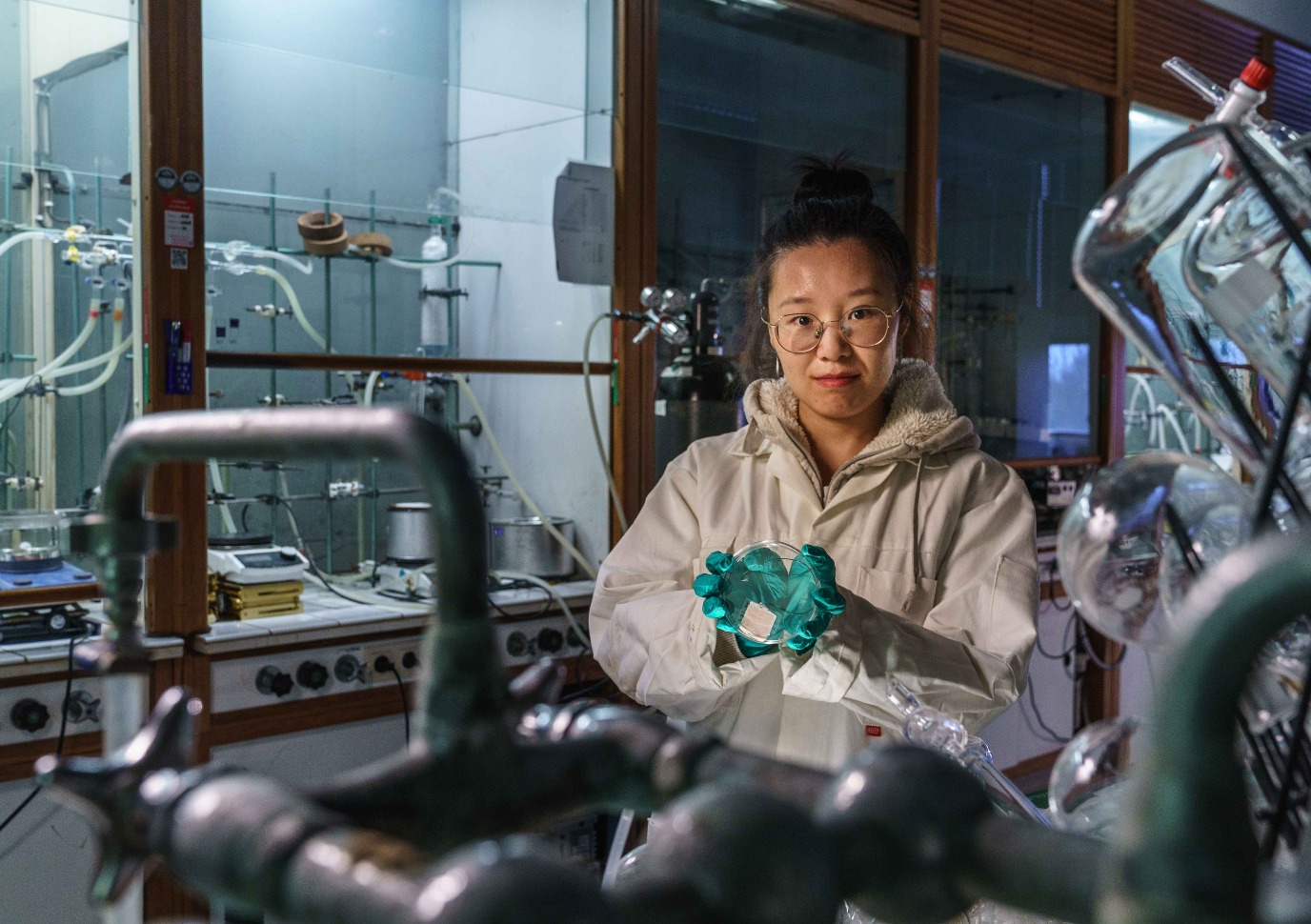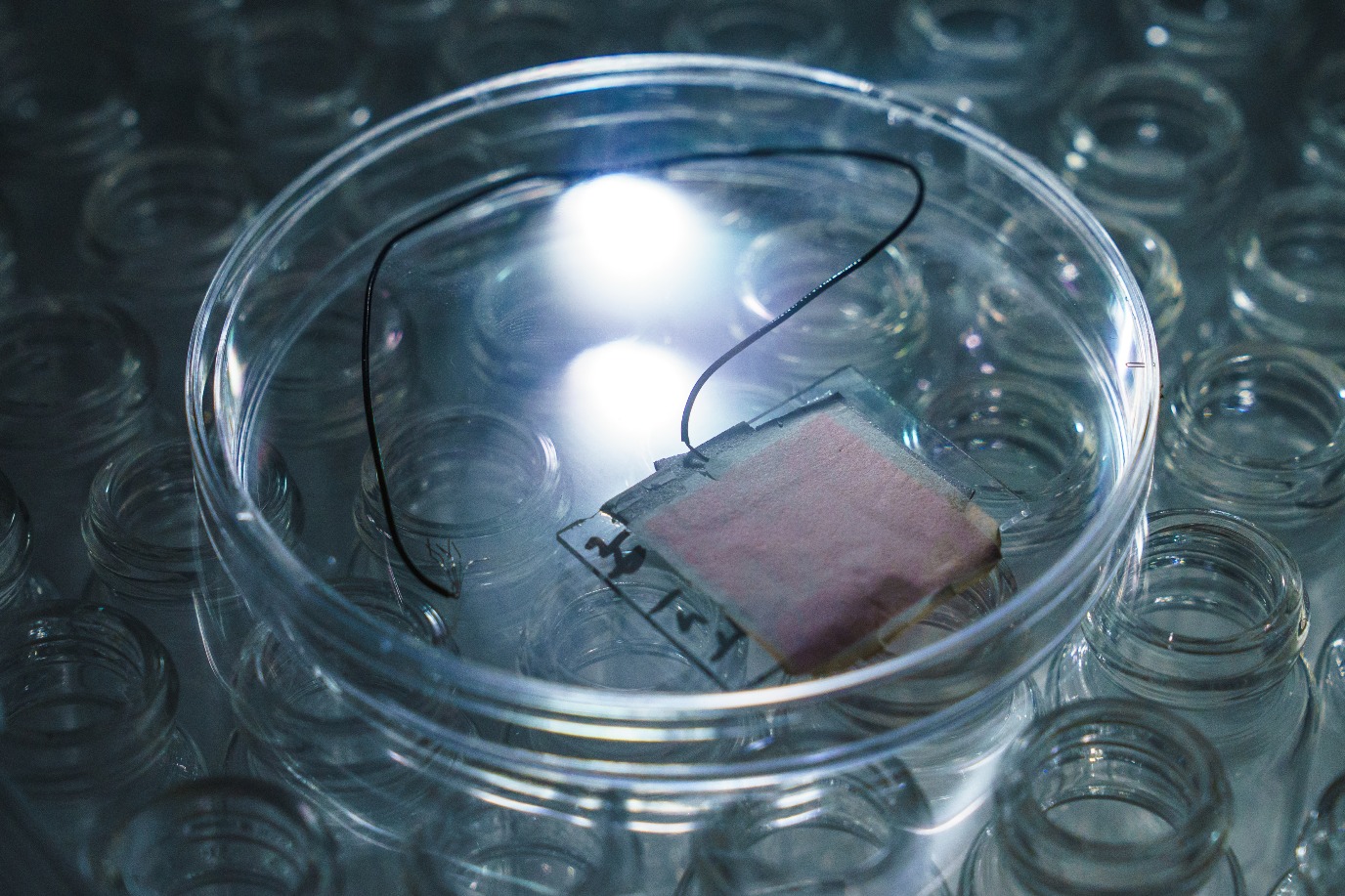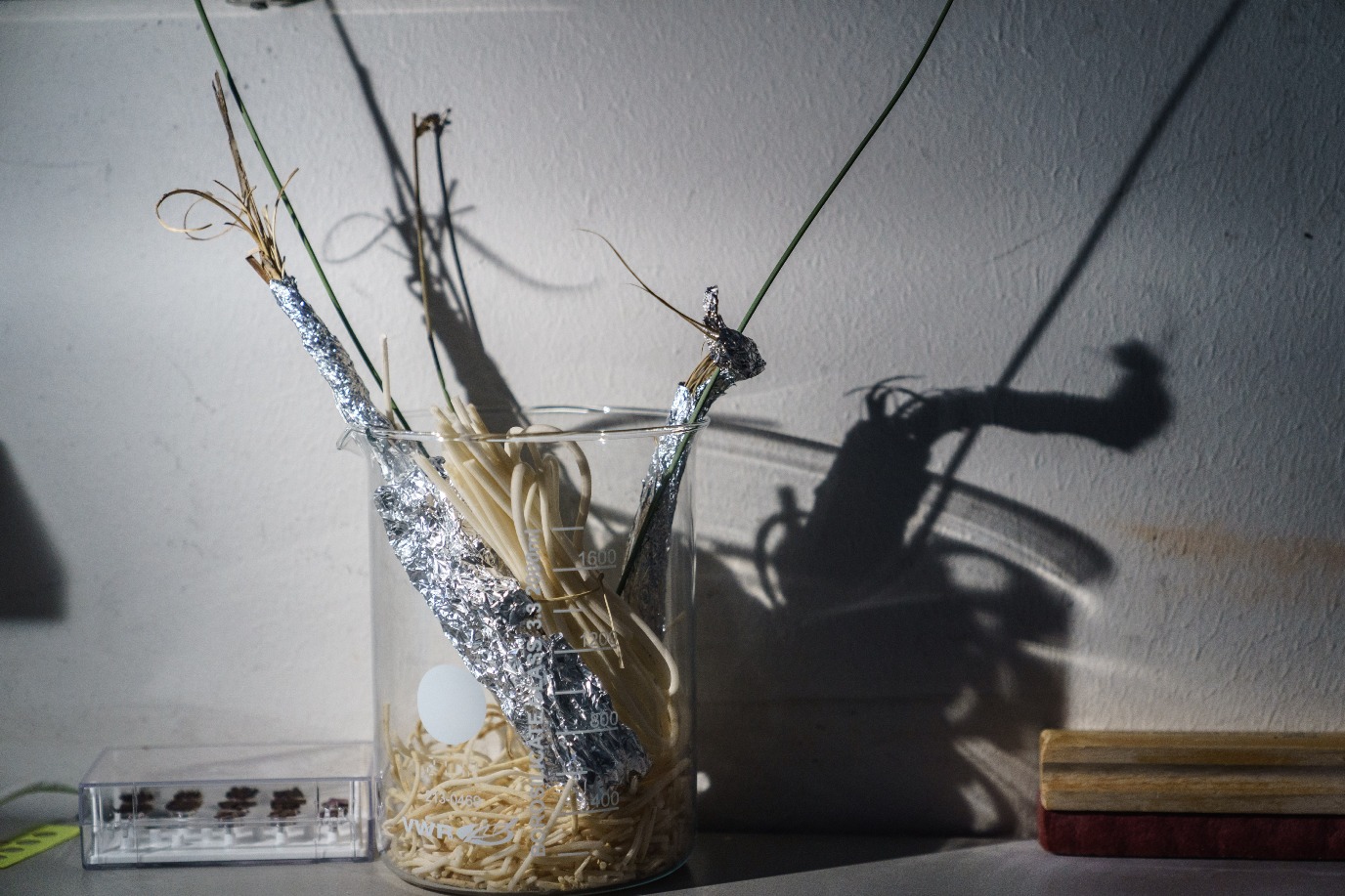A plant-based sensor
PhD student Qi Chen holds out a petri dish with a sensor the size of an SD card that can detect movement without a battery. ‘This sensor uses green energy’, Chen says. ‘It harvests movement and converts it into an electric signal.’ To build this, Chen employed the natural properties of the soft rush plant, a persistent weed that mostly grows in wet areas.



The sensor generates a current through the same principle that can give you an electric shock when you touch a door knob in winter: the triboelectric effect. An electric charge builds up between two materials through friction, for example the soles of your shoes and a carpet. In Chen’s sensor, two rough strips rub together and thus produce electricity.
Chen discovered by accident that the material of the soft rush plant was particularly suitable for making such rough strips. She was already working with this plant because the inside of its stem has a very open, foam-like structure, which is hard to produce artificially. One day, she spilled a mixture containing soft rush material on a piece of aluminium foil. ‘And I was too lazy to clean it up’, Chen laughs. The next day, a thin film with a rough surface had formed due to the plant’s open structure.
Two of these thin films are at the basis of this sensor, which makes the sensor doubly green: it does’t need a battery, and the plant material did not require intensive processing. Chen: ‘The municipality fights the soft rush plant as a weed, but in our lab it’s a valuable resource.’
Text: FSE Science Newsroom | Charlotte Vlek
Photos: Reyer Boxem
Every two weeks, UG Makers puts the spotlight on a researcher who has created something tangible, ranging from homemade measuring equipment for academic research to small or larger products that can change our daily lives. That is how UG researchers contribute to the solutions for big scientific and societal challenges.
For decades, engineering teaching and research at the UG has been part of a wide array of strong disciplines, and from a national point of view, our collaboration with the four technical universities is becoming more and more intensive.
More information
Qi Chen
More news
-
29 January 2026
Microplastic research - media hype or real danger?
-
27 January 2026
ERC Proof of Concept grant for Maria Loi
